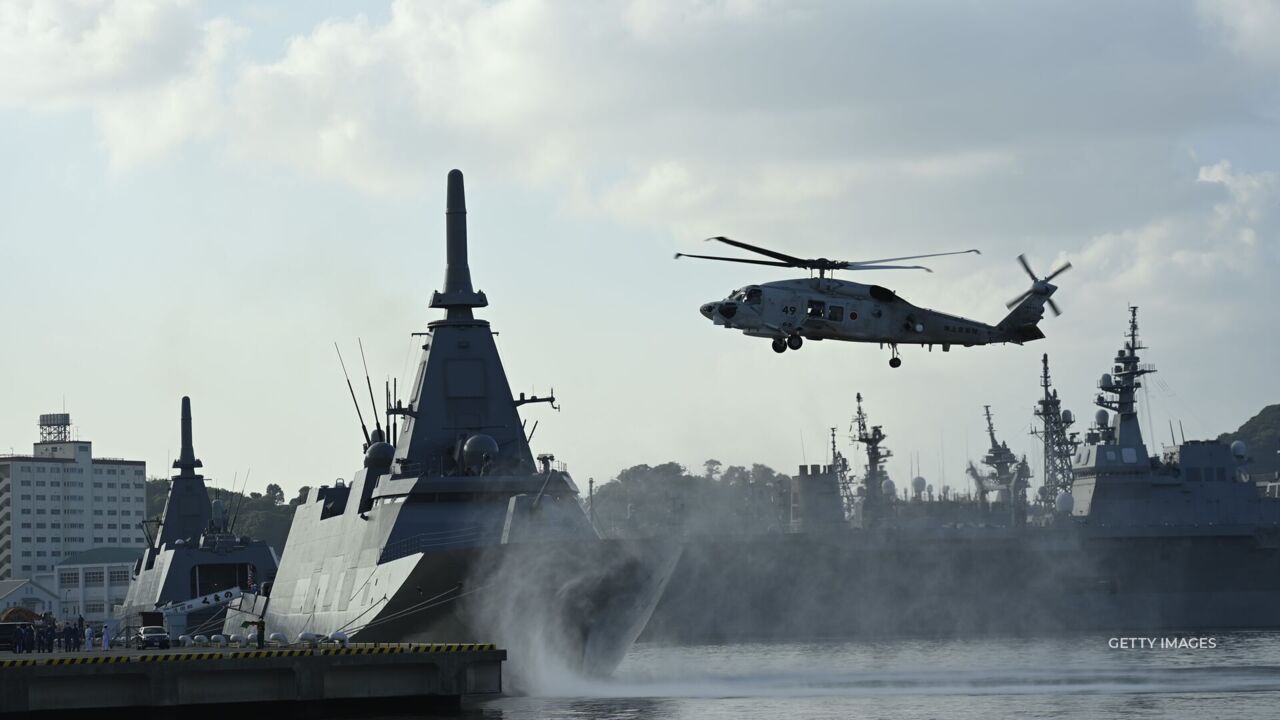
SINCE 1956, JAPAN’S MILITARY HAS SERVED STRICTLY IN A SELF-DEFENSE CAPACITY. IN FACT, IT’S CALLED THE SELF-DEFENSE FORCE, OR SDF.
THIS WEEK THOUGH, JAPAN TOOK THE FIRST STEP TO DEVELOP SOMETHING IT HASN’T HAD IN A GENERATION, FIRST STRIKE CAPABILITIES.
ON FRIDAY, JAPAN ADOPTED A NEW NATIONAL SECURITY STRATEGY, AND NAMED CHINA AS THE BIGGEST CHALLENGE TO ENSURING JAPAN’S PEACE, SAFETY AND STABILITY.
JAPAN IS UPPING ITS DEFENSE SPENDING TO 2% OF GDP, BRINGING IT INLINE WITH THE NATO STANDARD. PART OF THAT SPENDING WILL FUND THE DEPLOYMENT OF FOREIGN-DEVELOPED STANDOFF MISSILES, WHICH WILL GIVE JAPAN THE ABILITY TO PREEMPTIVELY STRIKE ITS ENEMIES IF THREATENED.
JAPAN THINKS LOCKHEED MARTIN’S TOMAHAWK AND JOINT AIR-TO-SURFACE STANDOFF MISSILES SHOULD DO THE JOB. DETAILS OF THE PURCHASE ARE STILL BEING WORKED OUT, BUT JAPAN THINKS THE STAND-OFF MISSILE BATTERIES COULD BE IN PLACE ACROSS THE COUNTRY BY 2026.
FOR DECADES, JAPAN PRIORITIZED ECONOMIC GROWTH OVER DEFENSE SPENDING, WHICH IS SEEN AS A SENSITIVE SUBJECT IN THE REGION GIVEN THE ATROCITIES JAPAN COMMITTED DURING WORLD WAR II. HOWEVER, JAPAN’S PRIME MINISTER MADE INCREASING DEFENSE SPENDING A PRIORITY WHEN HE TOOK OFFICE IN 2021.
AND GIVEN CHINA’S RECENT AGGRESSIVE POSTURING TOWARD TAIWAN, COUPLED WITH A SERIES OF MISSILE LAUNCHES FROM CHINA AND NORTH KOREA, AND MANY JAPANESE CITIZENS ARE NOW ALSO IN FAVOR OF INCREASED MILITARY SPENDING.
A SPOKESPERSON FOR THE CHINESE FOREIGN MINISTRY SAID HYPING UP THE SO-CALLED CHINA THREAT AS AN EXCUSE TO BUILD UP JAPAN’S MILITARY IS AN EXERCISE DOOMED TO FAIL.
WHILE JAPAN ANNOUNCED ITS NEW NATIONAL SECURITY STRATEGY–A SQUADRON OF CHINESE NAVY SHIPS SAILED THROUGH STRAITS NEAR JAPAN. IT’S NOT ALL THAT UNCOMMON IN THE REGION, BUT A CHINESE NEWSPAPER SAID THE MISSION SENDS A SIGNAL TO THE JAPANESE DISPLAYING CHINA’S CAPABILITIES IN SAFEGUARDING NATIONAL SOVEREIGNTY, TERRITORIAL INTEGRITY, AND DEVELOPMENT INTERESTS.






